Post Covid 19 recovery at NIKISA Geriatric and Rehabilitation Hospital
Rehabilitation is an important part of recovery after a bout of Covid 19 episode. It is expected that after obtaining Critical care at an acute care hospital, Covid recovered patients come to NIKISA Geriatric hospital for further recovery. NIKISA hospital will not admit the Covid patients immediately after they test positive for Covid 19 infection. The Covid patients must have been tested positive and should have completed minimum 14 days. The goal of Post Covid rehabilitation is to help the Covid patients from the run down that they undergo after Covid infection. Post Covid care of patients at NIKISA will help the patients to regain independence and improve the quality of life after the Covid 19 episode. The severity of Covid 19 complications and each person’s ability to recover vary widely.
NIKISA Covid rehabilitation plan will depend on the part of the body or type of ability affected by the Covid 19. Post Covid 19 recovering patients are divided into those who require critical care and those who do not require critical care right at the time of admission to NIKISA Hospital.
Patients who require Critical care
These patients are the ones who require high degree of care. Following is the criteria used to recognise po-t Covid 19 patients who require critical care during the recovery phase
- Completely immobile and are in Supine position.
- Discharged from acute care hospital with cannula, Riels tube, and catheters
- Patients with Spo2 more than 95%, but sometimes requiring Medical Oxygen, either continuous or on intermittent basis.
- Discharged Covid 19 patients who require suctioning on account of Phlegm build-up
- Discharged Covid 19 patients who are weak and completely bed ridden and therefore cannot communicate in an understandable manner with service providers.
1. These patients are admitted to Critical care section till they attain a non-critical stage.
2. Critical care section is almost like an intensive care unit and has the following facilities.
a. Patients are provided with Fowlers bed. b. Continues Medical oxygen supply facility is available in this section. c. There are duty doctors at this section on 24 X & basis. d. Patient monitors, suction facility is also available. e. There is a minor OT in the Critical care section to do procedures on emergency basis. f. Required activities like Chest physiotherapy, Suction etc are performed on bed side. g. Visitor entry is also restricted. h. Emergency cart is readily available. Emergency medicines provided by the hospital are to be replenished by the patient’s caretakers. i. Medicines and other consumables can be bought from the Hospital Pharmacy or from any other pharmacy and provided to the treating doctors and nurses. j. The Nutritionist guides the patients and their families on dietary requirement of the patients. Patients can get their diet from their homes. External catering services are also available.
Cardiac condition
During Post Covid recovery phase, it is essential to check cardiac condition twice a day for 2 weeks. This is especially required to be done for senior citizens and for those who suffer from comorbidities.
Physical Support
Recovered patients suffer from severe muscular pain and they require help of attendants for their mobility. If support is not availed a fracture on account of a fall could aggravate the situation.
Physical therapy
Physical therapy or Physiotherapy provided by a qualified Physiotherapist will go long way in reducing body pain and improves the mobility of recovering patients.
Blood parameters
Parameters like CBP, CRP, LFT, Creatinine, D Dimer, LDH Ferritin and IL 6 are to be monitored in patients who have suffered a run down from Covid 19 infections.
Lung condition
Even after a discharge from a Covid hospital the recovered person might suffer from breathlessness on account of Phlegm build-up. If need be administration of oxygen is perhaps required for some patients. Even a repeat HRCT is required to be done.
Fluid and Diet Intake
The patient must recover from run down through good fluid intake. Some patients exhibit continued problems of inability to taste and smell. Some will have problems in swallowing. Right type of assistance has to be provided to patients which includes feeding through Riels tube.
Continuous review of Medicine prescription
Patients with comorbidities and are recovering from Covid take medicines for pre-existing diseases and also medicines related to recovery from Covid. A hypoglycaemic attack, at the time of recovery from Covid
Once, the patients recover from critical condition, they are shifted to wards, specially created for rehabilitation of Covid 19 patients. In case the patient turns out to be more critical, the family members will be requested to shift the patient to an acute care hospital for further acute care.
Patients who do not require Critical care
- Patients who do not come under the above criteria.
- Patients who can be mobilised on wheel chair or on foot with or without support.
- Patients who are normal except for Covid 19 related issues and are able to eat normal food and do not require high degree of medical supervision.
- Covid 19 patients who do not require Critical Care in the judgement of NIKISA are moved to wards created for Covid 19 recovering patients.
- Physical facilities at the Covid 19 rehabilitation wards:
- All the wards are provided on Single Occupancy basis.
- These wards are fully equipped and have been designed keeping in mind the requirement of Covid 19 patients.
- Bed required for the convenience of patient will be provided. Option of utilising Fowler beds with air bed or luxury single bed or luxury double bed is provided to the patient.
- Every ward is provided with attached bath rooms with hot and cold-water supply, western commode, Meals table, T V, Fridge, Nurse call facility, newspaper and Drinking water.
- Services of Nurses and ward boys is available on 24 X & basis.
- The wards are centrally air conditioned. (on account of Covid 19 restrictions AC is not being used for the present). Every ward is provided with pedestal fan.
- Some rehabilitation equipment are provided at ward itself depending on the requirement of the recovering patient.
- Physiotherapy:
- A separate Physiotherapy section has been created to aid speedy recovery. To know more about Physiotherapy facilities available please click Physiotherapy section
- Physiotherapy is provided by a team of Physiotherapists.
- Progress in physiotherapy and rehabilitation is measured and recorded on a week to week basis.
- Medical and Diet:
- The patients are examined and treated by a team of doctors on a daily basis. In addition, whenever required our Specialists provide consultation to the patients.
- Medicines and other consumables can be bought by patient’s caretakers from the Hospital Pharmacy or from any other pharmacy and provided to the treating doctors and nurses.
- Usually Covid 19 patients suffer from disorders like diabetes and hypertension. It is very essential to monitor vital parameters and take action to prevent adverse impact of comorbidities.
- Many Covid 19 patients are aged. During the Covid Treatment phase they might have been in sedentary status. Some might have developed secondary complications arising out of poor hygiene. Bed sores, urine and incontinence are very common in aged and recovering Covid 19 patients. These aspects will also be addressed
- Proper nutrition and taking medication as per the prescription of nutritionist and the treating doctor respectively is of paramount importance in Covid 19 recovery. Our Nutritionist guides the patients and their families on dietary requirement of the patients. Patients can get their diet from their homes. External catering services are also available.
- Non-Clinical services to Covid 19 recovering patients:
- Non-clinical services towards the patients like bathing. dressing, spoon feeding. nasal feeding, toilet assistance, changing of diapers will be attended by the hospital staff.
- Toiletries and towels will be provided by the hospital.
- Care takers of patients can stay at the hospital at the ward assigned to the patients. Except providing a foam bed nothing else will be provided to the patient attendant.
- Brain & Psychology related recovery activities: Special care of patients suffering from delirium and disorientation in post Covid Recovery phase.
- Prompting the recovering patients to get back to normal life: Our councillors will discuss with family members at normal life pattern of the Covid recovering patients and help the recovering patients to list and note the activities that the recovering patients have to perform under normal conditions. They do give alarms and reminders to prompt the recovering patient to get back to activities which the patient might be missing out due to brain fog. These can also help to the patient to create a routine, which is one of the best ways to feel in control and get back to normal life.
- Brain exercises: Our Counsellors start new activities or hobbies that stimulate the brain, like puzzles, word games, number games, memory exercises and reading. Start with exercises which are achievable, and gradually challenge yourself to increase acuity.
- Break it down: Remembering or concentrating on all the steps of a complicated action might be difficult for aged patients. Our counsellors break down the steps of doing complicated actions and help the recovering patients.
Physiotherapy facilities at NIKISA Geriatric Centre and Rehabilitation hospital for Covid 19 patients.
Mobility training: Many Covid 19 patients should be first trained to use mobility aids, such as a walker, canes, wheelchair or ankle brace. The ankle brace can stabilize and strengthen the ankle to help support body's weight while the patient relearns to walk.
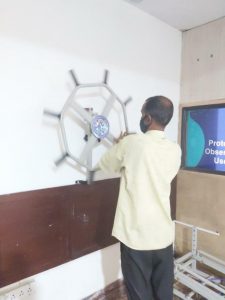
Shoulder Wheel
Resistance for strength developing. Ideal for shoulder, wrist and forearm exercise.
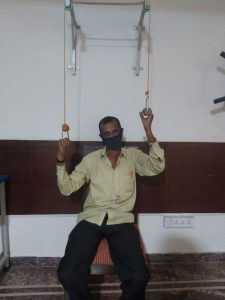
Multi Purpose Exercise Chair
Can perform various routines that will allow you to maintain the mobility of muscles and joints.

Ankle Exerciser
These exercises on ankle exercises are designed for rehabilitation of ankle sprains.

Nirmal hand
It is fitted with Pulleys, Leather loops for Finger hold, Weight-sets for Fingers, Hand, & Wrist exercises.
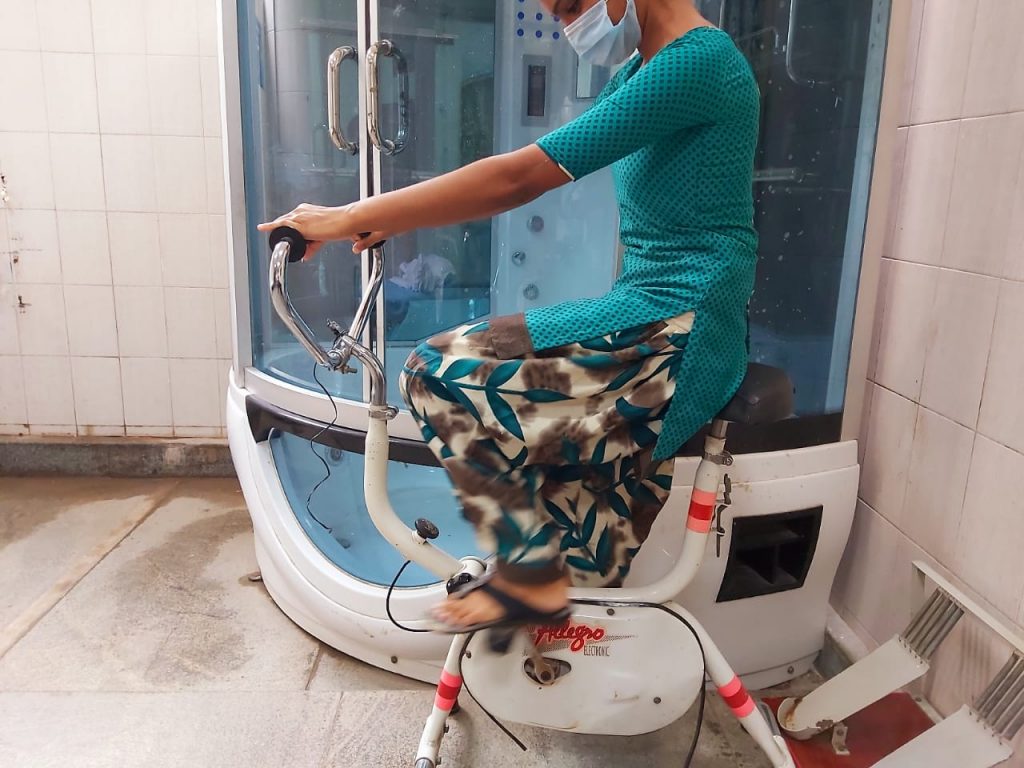
Static Cycle
Cycling is a gentle, low-impact sport that gives your cardiovascular system an effective workout.
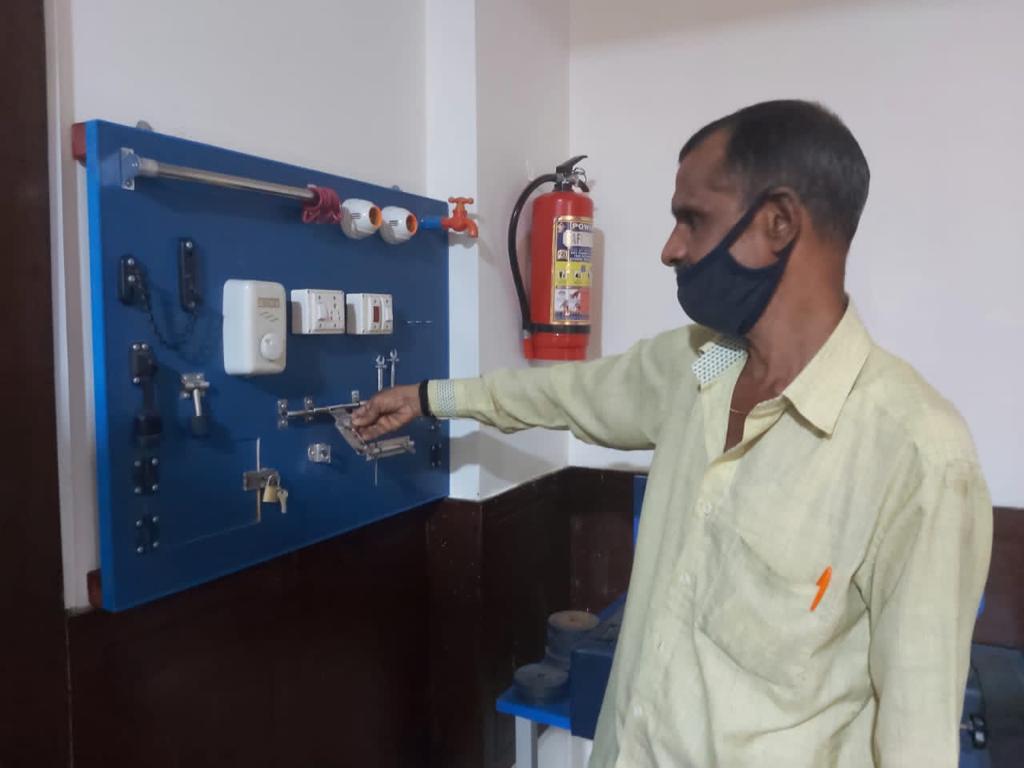
ADL Board
ADL are self-help or care activities. These activities can include everyday tasks such as dressing, self-feeding, bathing, laundry.
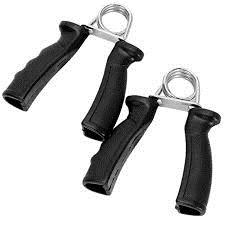
Hand gripper
Keep your hand active and strong with this black finger grip exerciser from the newest collection. It is used for hand and finger exercise in physiotherapy .

Wrist Circumstancer
Wrist Circumstancer helps your wrists and hands to exercise and helps with multiple smaller joints between the radius and ulna of the forearm.
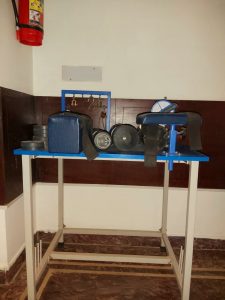
Arm Exerciser
It is used for physical and mental fitness of the clients.
It provides low impact exercise to increase strength & flexibility. It is Versatile for arm exercise. It Promotes blood circulation
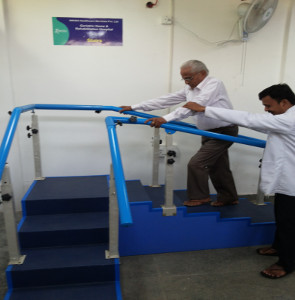
Stair Case Corner
This stair case provides efficient grip for the steps. This is used for providing limb exercises to the stroke and trauma patients.
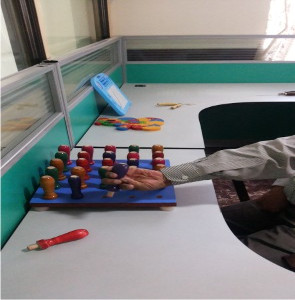
Peg Board
The pegboard conducts testing for the gross movements of hands, fingers and arms.
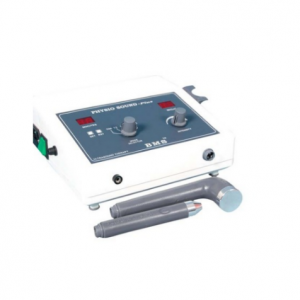
Ultrasound Therapy
These are electrical equipment which provide ultrasound therapy for pain redress. This is used on Stroke patients and also on patients with muscular pain.